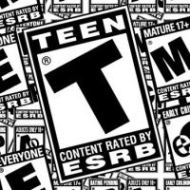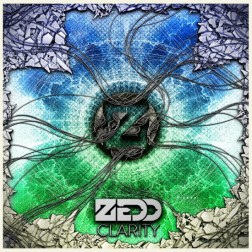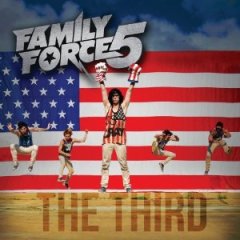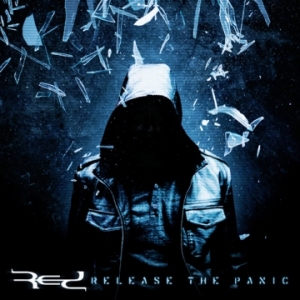 Periphery has been a force to be reckoned with since their debut album in 2010. That self-titled album quickly became somewhat of an instant classic among the then-fledgling djent scene; it set itself apart from the seven-stringed crowd by infusing the low tunings of djent with a prog metal sensibility reminiscent of bands like Animals As Leaders. The sextet from a state solidified their position as the face of djent with their second album, which, like most sophomore albums, took the sound of their debut, refined it, and added another layer of polish. Now, after nearly three years, Periphery has revealed not simply a new album, but a double album (though the combined length of the two only slightly eclipses the length of either of their previous efforts). Entitled Juggernaut: Alpha and Juggernaut: Omega respectively, these albums assert what the their first two albums had introduced to us: that Periphery is a solid band, here to stay.
Periphery has been a force to be reckoned with since their debut album in 2010. That self-titled album quickly became somewhat of an instant classic among the then-fledgling djent scene; it set itself apart from the seven-stringed crowd by infusing the low tunings of djent with a prog metal sensibility reminiscent of bands like Animals As Leaders. The sextet from a state solidified their position as the face of djent with their second album, which, like most sophomore albums, took the sound of their debut, refined it, and added another layer of polish. Now, after nearly three years, Periphery has revealed not simply a new album, but a double album (though the combined length of the two only slightly eclipses the length of either of their previous efforts). Entitled Juggernaut: Alpha and Juggernaut: Omega respectively, these albums assert what the their first two albums had introduced to us: that Periphery is a solid band, here to stay.
Juggernaut: Alpha starts slower and more gradually than previous albums, initially leading me to believe that the band’s sound had become softer, but the comparatively gentler tone of the first track is suddenly and violently uprooted by MK Ultra – an initially blistering and heavy track which rivals any previous Periphery work in sheer heaviness, but curiously ends with a jazz fusion-esque outro before leading into the following track. While the transition may seem jarring when described, it is expertly pulled off. It took a second listen of the albums for me to even realize how drastic a change had occurred in this track. Moments like this are peppered throughout the album, showing that Periphery has widened their horizons. They now range from moments even heavier than their typical djent sound to those inspired by jazz and lighter rock.
In fact, these lighter moments are one of the most noticeable evolutions to anyone who has listened to the preceding albums. Those who bashed the Clear EP for its willingness to experiment will likely be equally dissatisfied with Juggernaut: Alpha. Plenty of songs here are simply not djent – and that’s okay. Juggernaut moves noticeably away from the tropes of djent which as of late have become more and more predictable. Open-string chugs are still present, but used more tastefully, resulting in a precise punch when they appear. Moments exist in which it doesn’t entirely “work,” but they are few and far between. Periphery’s willingness to move outside of their comfort zone more than makes up for the few moments in which ideas are imperfectly executed.
Juggernaut: Omega is the yang to Alpha’s yin. While Alpha is more focused on melody and songwriting, raw energy is at the core of Omega. It strikes a better balance between vocal and instrumental lines than most of Alpha, giving each their due time to shine and create a more coherent sound overall. Pleasingly, the high points are the final two tracks (Omega and Stranger Things), both of which showcase the best of the sound of this album. They weave effortlessly between tight, heavy sections and soaring melodic lines, closing out the album on a high note.
Spencer’s vocals are on the front burner for nearly the whole of Juggernaut, more so on Alpha. While not the change I expected, it was a welcome one, as his vocals have always been fantastic, and have improved on this album in nearly every way. When singing, his range seems to have grown even larger than before – a feat I would have expected to be impossible. The tone of his singing changes with the tone of the music as well; he employs a nasal sound similar to that of a punk vocalist in lighter songs, and simply sings “heavier” on heavier songs. Even more impressive is the way in which his screams have rounded out over time. Since Periphery’s debut, his screams have grown from monotone to a well-controlled scream that ranges from shrill high screams to all but the lowest growls. I would go so far as to say that Spencer Sotelo is simply the most versatile vocalist in metal today, and certainly one of the most talented.
Guitar, bass and drum work is just as quality as one should expect from a band with Periphery’s track record. Quick, tight riffs and drum beats are often just the backing for the vocals, yet it’s easy to see that Juggernaut could even stand on the merits of its instrumentation. However, vocals often complement the slower and more repetitive instrumental sections, and vice versa. Periphery is no longer guitarist Misha Mansoor’s baby, it’s a cohesive group that apparently works best together. The way the albums are structured, vocals and instruments weave in and out of each other harmonically and tonally in a way that the band has rarely been able to achieve before. On-point production helps achieve this, as every instrument is easily discerned on its own and isn’t ever lost into a muddy mix. Periphery has always produced their own music, and has improved that skill massively here.
Lyrics are still unclear in the typical secular metal fashion, but seem more open to interpretation. There’s a definite theme of despair and redemption occurring, as Spencer sings first on 22 Faces: “Staring at the hourglass / My life, it feels like a machine running with no direction / I’m dying to see what it is that is eating away at me / Why can’t I feel the burn?” Yet from Stranger Things, we hear “Take submission from a man in control / A token for my sacrifice / Let it pour out and show what has healed / One can finally find what’s left inside this masochistic personality / In a holy bond we live.” Again, the actual message is unclear, but can be interpreted a number of ways. From a purely aesthetic standpoint, the lyrics are definitely some of the best that Periphery has ever written, yet seem to offer even less of a didactic point than before.
Juggernaut: Alpha and Juggernaut: Omega are fantastic albums, and if you have any inclination to enjoy metal, you should listen to them together as soon as you can. More could be said about them (the atmospheric tone, the drum experimentation, the fusion influences), but suffice it to say that they are in almost every way the most artistic and beautiful output from Periphery. I will be eagerly anticipating new releases, in the hopes that they maintain a long and fruitful career.
Listen to Periphery on Spotify










